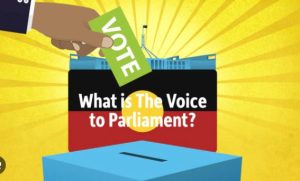Migrants, refugees confused over Indigenous Voice to Parliament – survey finds
Newly arrived migrants and refugees in Australia are largely unaware and confused about the proposal to create an Indigenous Voice to Parliament, a new survey has found.
An overwhelming majority of newcomers know little about The Voice proposal or the upcoming referendum and the change it would mean to Australia’s constitution.
Migrant and refugee settlement agency AMES Australia recently surveyed 150 people from 30 different countries studying English or accessing migrant or refugee settlement services at, Noble Park, Dandenong, Werribee, Footscray and in Western Sydney. All had been in Australia less than five years.
130 of the participants were surveyed randomly and a control group of 30 people were surveyed after a 30 minute explanation session on an Indigenous Voice to Parliament.
 Among the random group, more than 67 per cent of respondents were either not aware or only partly aware of The Voice Proposal and 75 per cent were not aware it would mean a change to the constitution.
Among the random group, more than 67 per cent of respondents were either not aware or only partly aware of The Voice Proposal and 75 per cent were not aware it would mean a change to the constitution.
Asked whether they generally supported the idea of a Voice, 40 per cent were unsure, although almost 50 per cent said they were in favour.
But the survey found that the more people knew about The Voice, the more likely they were to support it.
Among the sample group who received an explanation session, 80 per cent said they were in favour of the creation of The Voice and another 20 per cent were ‘mostly’ in favour.
Eighty per cent of this group said they were aware of The Voice proposal and 20 per cent were ‘mostly’ aware.
Fifty per cent said they were aware of the details of The Voice proposal and another 30 per cent were ‘mostly’ aware.
Eighty per cent of respondents in the control group said they were aware, or mostly aware, of the historical lack of representation of indigenous peoples in national affairs. For the random group this figure was just 25 per cent.
Asked if they would vote for a Voice to Parliament, among the random group 50 per cent were unsure, 37.5 per cent said they would and 12.5 per cent said they would not. In the control group, 80 per cent said they would vote for a Voice and 20 per cent were unsure.
Asked whether they thought The Voice referendum would succeed, among the random group 50 per cent were unsure, 40 per cent said they thought it would succeed and 10 per cent thought it would not. In the control group, 70 per cent were confident the Voice would succeed and 30 per cent were unsure.
AMES Australia CEO Cath Scarth said the survey showed a need for more information on the Voice to be disseminated among to culturally diverse Australians.
“The Voice is an important referendum that would give indigenous Australians a say on issues that affect them and have the potential to positively impact thousands of lives.
“So it’s important that everyone eligible to vote in the referendum understand what The Voice means, what it is seeking to redress and the difference it might make in people’s lives.” Ms Scarth said.
Syrian refugee and survey respondent Norma Medawar Chamous said after learning about The Voice proposal, she would support it.
Ms Medawar, who became an Australian citizen earlier this year, said she planned to vote ‘yes’ in the referendum, expected in October.
“When I learned more about some of the disadvantages indigenous people in Australia face, I realised there was a need to address their specific issues.” she said.
“And learning that aboriginal people could not vote before 1967 was a surprise. As the original people in this land who have been displaced by settlement, we should do more to support the progress of indigenous communities.” Ms Medawar said.
But she said that search online for information about The Voice has left her confused.
“There seems to be a lot of misinformation on the internet. It can be hard to know what is factual and what is not. So it is important for people to seek out reliable information,’ Ms Medawar said.












